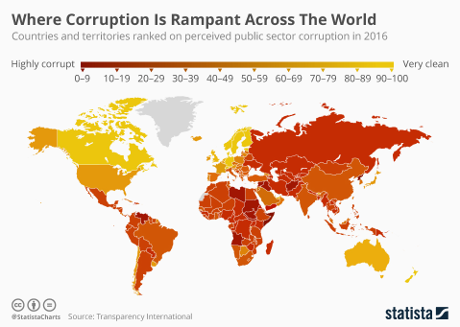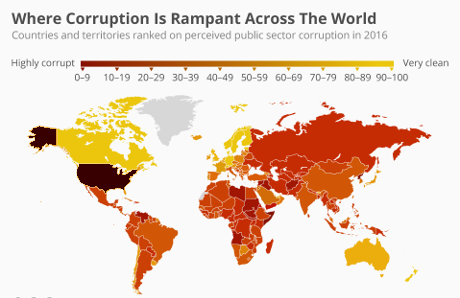The The New York Times, , Google and Facebook would all report no.
Knowingly false?
It uses the definition of “corruption” in McCutcheon v. Federal Election Comm’n, 134 S. Ct. 1434 (2014).
Chief Justice Roberts writing for the majority:
…
Moreover, while preventing corruption or its appearance is a legitimate objective, Congress may target only a specific type of corruption—“quid pro quo” corruption. As Buckley explained, Congress may permissibly seek to rein in “large contributions [that] are given to secure a political quid pro quo from current and potential office holders.” 424 U. S., at 26. In addition to “actual quid pro quo arrangements,” Congress may permissibly limit “the appearance of corruption stemming from public awareness of the opportunities for abuse inherent in a regime of large individual financial contributions” to particular candidates. Id., at 27; see also Citizens United, 558 U. S., at 359 (“When Buckley identified a sufficiently important governmental interest in preventing corruption or the appearance of corruption, that interest was limited to quid pro quo corruption”).Spending large sums of money in connection with elections, but not in connection with an effort to control the exercise of an officeholder’s official duties, does not give rise to such quid pro quo corruption. Nor does the possibility that an individual who spends large sums may
garner “influence over or access to” elected officials or political parties. Id., at 359; see McConnell v. Federal Election Comm’n, 540 U.S. 93, 297 (2003) (KENNEDY, J., concurring in judgment in part and dissenting in part). And because the Government’s interest in preventing the
appearance of corruption is equally confined to the appearance of quid pro quo corruption, the Government may not seek to limit the appearance of mere influence or access. See Citizens United, 558 U. S., at 360.
… (page 20)
But with the same “facts,” if your definition of “quid pro quo” included campaign contributions, then this map is obviously false.
In fact, Christopher Robertson, D. Alex Winkelman, Kelly Bergstrand, and Darren Modzelewski, in The Appearance and the Reality of Quid Pro Quo Corruption: An Empirical Investigation Journal of Legal Analysis (2016) 8 (2): 375-438. DOI: https://doi.org/10.1093/jla/law006, conduct an empirical investigation into how jurors could view campaign contributions as “quid pro quo.”
Abstract:
The Supreme Court says that campaign finance regulations are unconstitutional unless they target “quid pro quo” corruption or its appearance. To test those appearances, we fielded two studies. First, in a highly realistic simulation, three grand juries deliberated on charges that a campaign spender bribed a Congressperson. Second, 1271 representative online respondents considered whether to convict, with five variables manipulated randomly. In both studies, jurors found quid pro quo corruption for behaviors they believed to be common. This research suggests that Supreme Court decisions were wrongly decided, and that Congress and the states have greater authority to regulate campaign finance. Prosecutions for bribery raise serious problems for the First Amendment, due process, and separation of powers. Safe harbors may be a solution.
Using Robertson, et al., “quid pro quo,” or even a more reasonable definition of “corruption:”
Transparency International defines corruption broadly as the abuse of entrusted power for private gain. (What is Public Sector Corruption?)
a re-colorization of the map shows a different reading of corruption in the United States:
Do you think the original map (top) is going to appear with warnings it depends on how you define corruption?
Or with a note saying a definition was chosen to conceal corruption of the US government?
I didn’t think so either.
PS: The U.S. has less minor corruption than many countries. The practice of and benefits from corruption are limited to the extremely wealthy.

